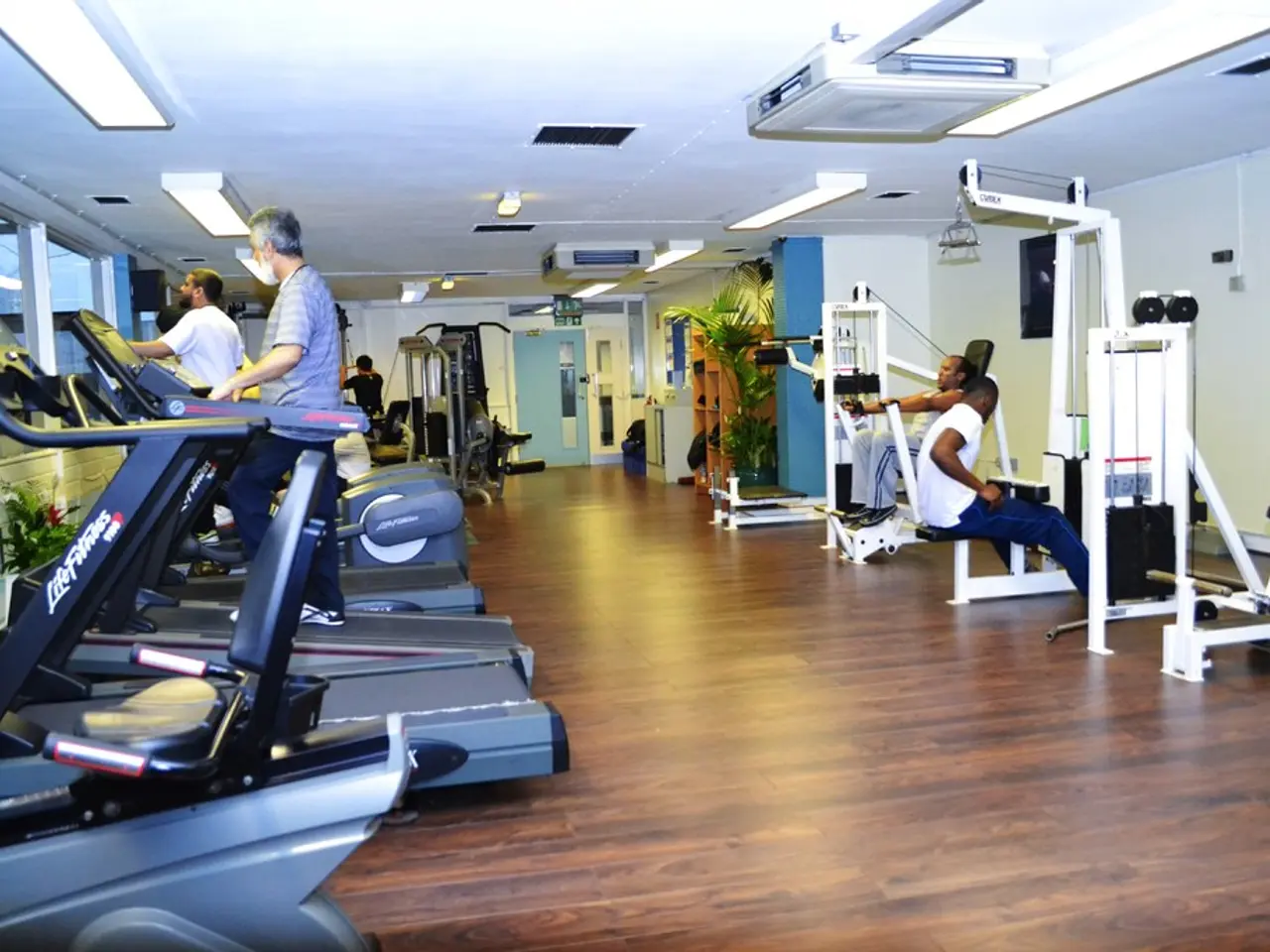Mental Health Enhancement in Children Confirmed through Physical Activity
The University of South Australia (UniSA) has conducted a comprehensive study that underscores the significant role of structured exercise in improving mental health in children and teens. The study, which involved a meta-meta-analysis of 375 clinical trials involving over 38,000 young people, provides compelling evidence of the benefits of exercise in managing depression and anxiety.
According to the study, light resistance activities, such as low-intensity exercises involving light weights or gentle circuit activities, have been shown to be particularly effective in reducing anxiety symptoms [1][5]. Moderate mixed-mode programs, which combine aerobic and strength training elements, are most beneficial for reducing depression. Interestingly, the greatest improvements in depression symptoms occurred in programs lasting fewer than 12 weeks [1].
Professor Carol Maher, a senior researcher at UniSA, emphasizes the importance of exercise for mental health in children and teens. She suggests that structured exercise programs, including strength training or a mix of activities, are especially promising for improving mental health. The study findings suggest that exercise should be a core part of mental health care for children and teens, whether in school, community, or clinical settings.
The study also demonstrates that even short periods of exercise, regardless of the type, can deliver benefits for children's mental health. Prof Maher emphasizes the importance of regular exercise for children's mental health, even in short bursts. She notes that parents do not need to invest in gym memberships or training programs for their children to reap the benefits of exercise. Play-based activities, games, and sport are valuable forms of movement that can support mental wellbeing.
The study findings indicate that exercise is a low-cost, widely accessible strategy that could make a real difference to children's mental health. The study suggests that exercise is an effective, accessible, lifestyle intervention that can immediately improve mental health issues in children without resorting to medications. The results support the use of structured exercise as a powerful, low-cost intervention that can complement or even replace traditional treatments for youth mental health challenges.
In conclusion, the University of South Australia's systematic umbrella review and meta-meta-analysis provide robust evidence for the effectiveness of structured exercise in improving mental health in children and teens. The findings underscore the importance of incorporating exercise into mental health care for young people, offering a promising and accessible solution for improving mental health outcomes.
[1] University of South Australia. (2021). Structured exercise is highly effective in reducing depression and anxiety in children and teens. ScienceDaily. Retrieved June 10, 2022 from www.sciencedaily.com/releases/2021/05/210524134208.htm [2] University of South Australia. (2021). Exercise is a powerful, low-cost intervention for youth mental health challenges. ScienceDaily. Retrieved June 10, 2022 from www.sciencedaily.com/releases/2021/05/210524134208.htm [3] University of South Australia. (2021). Exercise is an effective, accessible, lifestyle intervention for children's mental health. ScienceDaily. Retrieved June 10, 2022 from www.sciencedaily.com/releases/2021/05/210524134208.htm [4] University of South Australia. (2021). Low-intensity resistance exercises are effective in reducing anxiety in young people. ScienceDaily. Retrieved June 10, 2022 from www.sciencedaily.com/releases/2021/05/210524134208.htm [5] University of South Australia. (2021). Moderate mixed-mode programs are most beneficial for reducing depression in children and teens. ScienceDaily. Retrieved June 10, 2022 from www.sciencedaily.com/releases/2021/05/210524134208.htm
- The study conducted by the University of South Australia showcases the significant role of structured exercise in improving mental health in children and teens, particularly in managing depression and anxiety.
- According to the research, light resistance activities, such as low-intensity exercises involving light weights or gentle circuit activities, have been shown to be effective in reducing anxiety symptoms.
- Moderate mixed-mode programs, which blend aerobic and strength training elements, are most advantageous for reducing depression.
- The study findings suggest that even brief periods of exercise can yield benefits for children's mental health and that regular exercise, whether through play-based activities, games, or sport, can support mental wellbeing.
- The University of South Australia's study indicates that exercise is a low-cost, widely accessible strategy that can make a significant difference in children's mental health, potentially serving as a powerful, low-cost intervention that can complement or replace traditional treatments for youth mental health challenges.




